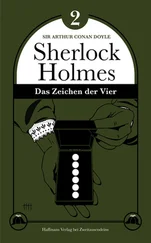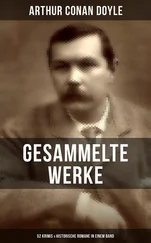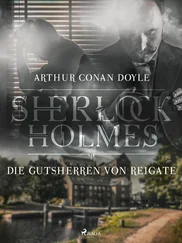Arthur Conan Doyle - Sir Nigel
Здесь есть возможность читать онлайн «Arthur Conan Doyle - Sir Nigel» — ознакомительный отрывок электронной книги совершенно бесплатно, а после прочтения отрывка купить полную версию. В некоторых случаях можно слушать аудио, скачать через торрент в формате fb2 и присутствует краткое содержание. Жанр: foreign_prose, на английском языке. Описание произведения, (предисловие) а так же отзывы посетителей доступны на портале библиотеки ЛибКат.
- Название:Sir Nigel
- Автор:
- Жанр:
- Год:неизвестен
- ISBN:нет данных
- Рейтинг книги:4 / 5. Голосов: 1
-
Избранное:Добавить в избранное
- Отзывы:
-
Ваша оценка:
- 80
- 1
- 2
- 3
- 4
- 5
Sir Nigel: краткое содержание, описание и аннотация
Предлагаем к чтению аннотацию, описание, краткое содержание или предисловие (зависит от того, что написал сам автор книги «Sir Nigel»). Если вы не нашли необходимую информацию о книге — напишите в комментариях, мы постараемся отыскать её.
Sir Nigel — читать онлайн ознакомительный отрывок
Ниже представлен текст книги, разбитый по страницам. Система сохранения места последней прочитанной страницы, позволяет с удобством читать онлайн бесплатно книгу «Sir Nigel», без необходимости каждый раз заново искать на чём Вы остановились. Поставьте закладку, и сможете в любой момент перейти на страницу, на которой закончили чтение.
Интервал:
Закладка:
There was a time when the Lorings had held the country from the North Downs to the Lakes of Frensham, and when their grim castle-keep rising above the green meadows which border the River Wey had been the strongest fortalice betwixt Guildford Castle in the east and Winchester in the west. But there came that Barons' War, in which the King used his Saxon subjects as a whip with which to scourge his Norman barons, and Castle Loring, like so many other great strongholds, was swept from the face of the land. From that time the Lorings, with estates sadly curtailed, lived in what had been the dower-house, with enough for splendor.
And then came their lawsuit with Waverley Abbey, and the Cistercians laid claim to their richest land, with peccary, turbary and feudal rights over the remainder. It lingered on for years, this great lawsuit, and when it was finished the men of the Church and the men of the Law had divided all that was richest of the estate between them. There was still left the old manor-house from which with each generation there came a soldier to uphold the credit of the name and to show the five scarlet roses on the silver shield where it had always been shown – in the van. There were twelve bronzes in the little chapel where Matthew the priest said mass every morning, all of men of the house of Loring. Two lay with their legs crossed, as being from the Crusades. Six others rested their feet upon lions, as having died in war. Four only lay with the effigy of their hounds to show that they had passed in peace.
Of this famous but impoverished family, doubly impoverished by law and by pestilence, two members were living in the year of grace 1349 – Lady Ermyntrude Loring and her grandson Nigel. Lady Ermyntrude's husband had fallen before the Scottish spearsmen at Stirling, and her son Eustace, Nigel's father, had found a glorious death nine years before this chronicle opens upon the poop of a Norman galley at the sea-fight of Sluys. The lonely old woman, fierce and brooding like the falcon mewed in her chamber, was soft only toward the lad whom she had brought up. All the tenderness and love of her nature, so hidden from others that they could not imagine their existence, were lavished upon him. She could not bear him away from her, and he, with that respect for authority which the age demanded, would not go without her blessing and consent.
So it came about that Nigel, with his lion heart and with the blood of a hundred soldiers thrilling in his veins, still at the age of two and twenty, wasted the weary days reclaiming his hawks with leash and lure or training the alans and spaniels who shared with the family the big earthen-floored hall of the manor-house.
Day by day the aged Lady Ermyntrude had seen him wax in strength and in manhood, small of stature, it is true, but with muscles of steel – and a soul of fire. From all parts, from the warden of Guildford Castle, from the tilt-yard of Farnham, tales of his prowess were brought back to her, of his daring as a rider, of his debonair courage, of his skill with all weapons; but still she, who had both husband and son torn from her by a bloody death, could not bear that this, the last of the Lorings, the final bud of so famous an old tree, should share the same fate. With a weary heart, but with a smiling face, he bore with his uneventful days, while she would ever put off the evil time until the harvest was better, until the monks of Waverley should give up what they had taken, until his uncle should die and leave money for his outfit, or any other excuse with which she could hold him to her side.
And indeed, there was need for a man at Tilford, for the strife betwixt the Abbey and the manor-house had never been appeased, and still on one pretext or another the monks would clip off yet one more slice of their neighbor's land. Over the winding river, across the green meadows, rose the short square tower and the high gray walls of the grim Abbey, with its bell tolling by day and night, a voice of menace and of dread to the little household.
It is in the heart of the great Cistercian monastery that this chronicle of old days must take its start, as we trace the feud betwixt the monks and the house of Loring, with those events to which it gave birth, ending with the coming of Chandos, the strange spear-running of Tilford Bridge and the deeds with which Nigel won fame in the wars. Elsewhere, in the chronicle of the White Company, it has been set forth what manner of man was Nigel Loring. Those who love him may read herein those things which went to his making. Let us go back together and gaze upon this green stage of England, the scenery, hill, plain and river even as now, the actors in much our very selves, in much also so changed in thought and act that they might be dwellers in another world to ours.
Chapter II. How the devil came to Waverley
The day was the first of May, which was the Festival of the Blessed Apostles Philip and James. The year was the 1,349th from man's salvation.
From tierce to sext, and then again from sext to nones, Abbot John of the House of Waverley had been seated in his study while he conducted the many high duties of his office. All around for many a mile on every side stretched the fertile and flourishing estate of which he was the master. In the center lay the broad Abbey buildings, with church and cloisters, hospitium, chapter-house and frater-house, all buzzing with a busy life. Through the open window came the low hum of the voices of the brethren as they walked in pious converse in the ambulatory below. From across the cloister there rolled the distant rise and fall of a Gregorian chant, where the precentor was hard at work upon the choir, while down in the chapter-house sounded the strident voice of Brother Peter, expounding the rule of Saint Bernard to the novices.
Abbot John rose to stretch his cramped limbs. He looked out at the greensward of the cloister, and at the graceful line of open Gothic arches which skirted a covered walk for the brethren within. Two and two in their black-and-white garb with slow step and heads inclined, they paced round and round. Several of the more studious had brought their illuminating work from the scriptorium, and sat in the warm sunshine with their little platters of pigments and packets of gold-leaf before them, their shoulders rounded and their faces sunk low over the white sheets of vellum. There too was the copper-worker with his burin and graver. Learning and art were not traditions with the Cistercians as with the parent Order of the Benedictines, and yet the library of Waverley was well filled both with precious books and with pious students.
But the true glory of the Cistercian lay in his outdoor work, and so ever and anon there passed through the cloister some sunburned monk, soiled mattock or shovel in hand, with his gown looped to his knee, fresh from the fields or the garden. The lush green water-meadows speckled with the heavy-fleeced sheep, the acres of corn-land reclaimed from heather and bracken, the vineyards on the southern slope of Crooksbury Hill, the rows of Hankley fish-ponds, the Frensham marshes drained and sown with vegetables, the spacious pigeon-cotes, all circled the great Abbey round with the visible labors of the Order.
The Abbot's full and florid face shone with a quiet content as he looked out at his huge but well-ordered household. Like every head of a prosperous Abbey, Abbot John, the fourth of the name, was a man of various accomplishments. Through his own chosen instruments he had to minister a great estate and to keep order and decorum among a large body of men living a celibate life. He was a rigid disciplinarian toward all beneath him, a supple diplomatist to all above. He held high debate with neighboring abbots and lords, with bishops, with papal legates, and even on occasion with the King's majesty himself. Many were the subjects with which he must be conversant. Questions of doctrine, questions of building, points of forestry, of agriculture, of drainage, of feudal law, all came to the Abbot for settlement. He held the scales of justice in all the Abbey banlieue which stretched over many a mile of Hampshire and of Surrey. To the monks his displeasure might mean fasting, exile to some sterner community, or even imprisonment in chains. Over the layman also he could hold any punishment save only corporeal death, instead of which he had in hand the far more dreadful weapon of spiritual excommunication.
Читать дальшеИнтервал:
Закладка:
Похожие книги на «Sir Nigel»
Представляем Вашему вниманию похожие книги на «Sir Nigel» списком для выбора. Мы отобрали схожую по названию и смыслу литературу в надежде предоставить читателям больше вариантов отыскать новые, интересные, ещё непрочитанные произведения.
Обсуждение, отзывы о книге «Sir Nigel» и просто собственные мнения читателей. Оставьте ваши комментарии, напишите, что Вы думаете о произведении, его смысле или главных героях. Укажите что конкретно понравилось, а что нет, и почему Вы так считаете.












